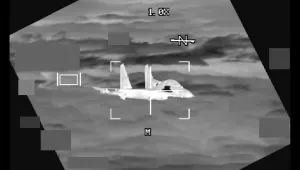Merits of Uncertainty: The Evolution and Future of China’s Nuclear Retaliatory Capability
Speaker: Wu Riqiang, Research Fellow with the International Security Program and Project on Managing the Atom A simplified nuclear exchange model will be developed to evaluate China’s past and current nuclear retaliatory capability against the Soviet Union and the United States. The modeling suggests that according to Western standards, China’s nuclear retaliation has been and remains far from “assured.” This result reflects China’s special nuclear philosophy, which emphasizes the role of nuclear taboo and prioritizes political control over survivability. However, in the face of U.S. advances in the areas of counterforce and missile defense, China probably has to continue to improve its nuclear forces qualitatively and, if necessary, quantitatively, in order to maintain its deterrent level.



